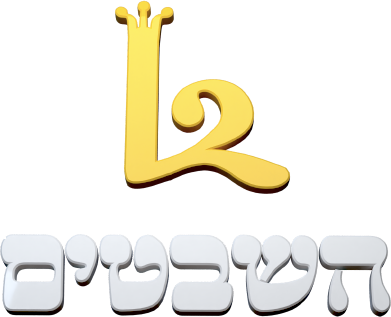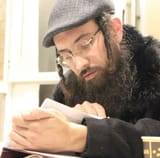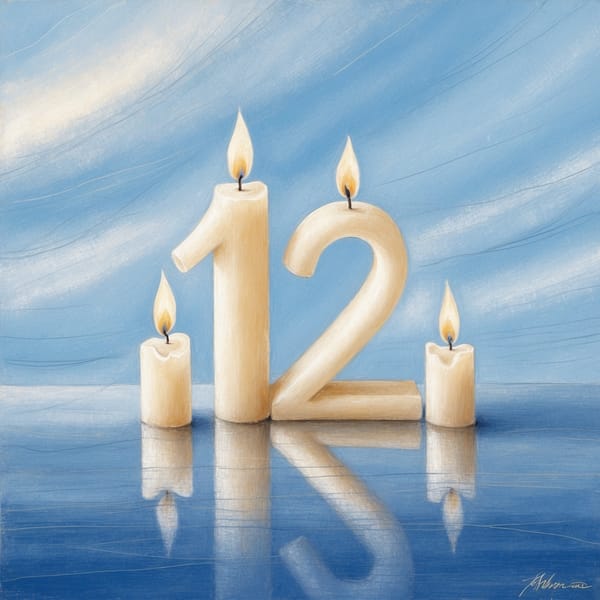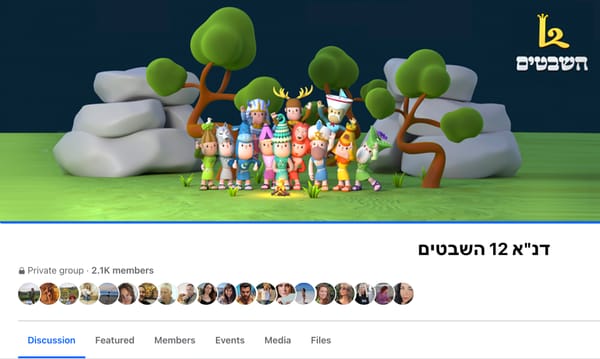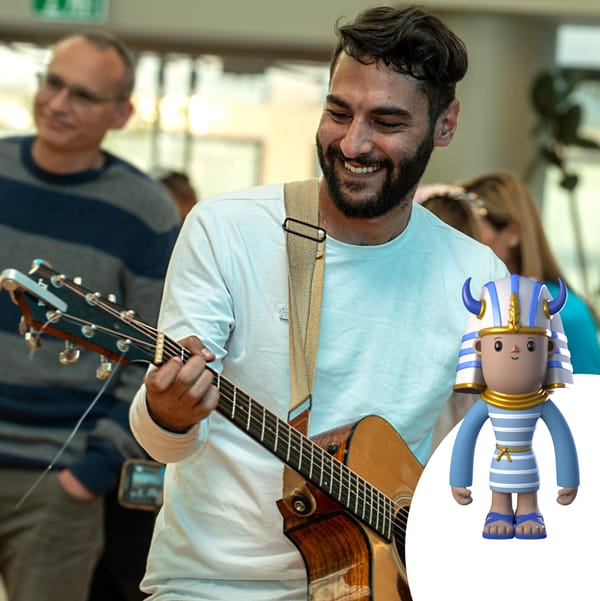Priests and Levites

(Based on Rabbi Sharkey's articles)
There is a tribe in Israel, the tribe of Levi, which is divided into two groups:
Priests and Levites. This tribe has a special status among the people. The most famous and important people belonged to this tribe in high percentages: Moses, Miriam the prophetess, Aaron Hacohen and Pinchas, Ali and Zadok, Joshua ben Yehotzedek, Ezra the scribe, Shimon the Tzaddik, Mattityahu the Hasmonean and his sons, Ishmael ben Elisha Cohen Gadol and Rabbi Yossi Hacohen, Rabbi Tarpon and Rava and Rav Kahane, and Rav Kook. Without a doubt, this is a respectable tribe that also has the virtue of giving birth to special people. In fact, the Torah itself testifies to the special virtue of the priests and Levites, since they are worthy of the tribe in the Sanhedrin,
"And you came to the Levite priests and to the judge who will be in those days, and you preached and they told you the word of judgment. And you did according to what they would tell you from that place, which the Lord chose, and you kept to do as He directed" (Deuteronomy 17:9-10):
Although anyone from Israel can be a member of the Sanhedrin, the language of the Torah implies that there is a certain preference for priests and Levites. If a place becomes available in the Sanhedrin and there are two candidates for the position with identical qualifications, then if one of them is Cohen or Levy, then he will be preferred over Israel. It seems that there is a special providence for this tribe, we will deal with the question of its essence.
The meaning of the name Levi
The tribe of Levi is named after the third son of our forefather Jacob. The reason Levi was called by this name appears in the book of Genesis (29:34):
"And conceive further, and give birth to a son, and say now this time he will accompany me personally, because I bore him three sons, so he called his name Levi."
Levi's name is derived from the word funeral, to accompany, to connect with something else. This name seems to indicate inferiority, since it means that this is a person whose entire existence is due to accompanying someone else, a person who has no self-identity. But it is also a great virtue, such a person does not have his own color and therefore can belong to everyone. The Levi can be a glue that connects all the parts. And this is indeed the business of the tribe of Levi, to be a kind of glue by which all the tribes of Israel unite. In Israel nation there are thirteen tribes, twelve tribes and another tribe of Levi. The number thirteen is also the geometry of the word one, and of the word love, which causes connection and unity.
Levi has nothing of himself, he is, as we said, an accompanying personality. The Levi is the sandwich figure, neither up nor down. There were three classes among Israel people: the priests – the aristocracy, the Israelis – the landowners, and the Levites – neither here nor there. The Levites are also always mentioned in the Torah along with the poor, the stranger, the orphan, and the widow. Precisely because the Levite is poor and backward, he can belong to everyone. From this, it is also clear why this tribe was chosen to be the tool for receiving and disseminating the Torah.
The tribe of Levi deserves to receive the Torah because the Torah does not belong to anything natural in this world, it has no natural footing. Therefore, in order to be able to connect to a higher content than the world, it was necessary to choose a tribe that also does not have any real foothold in this world – an accompanying tribe.

The place where the tribe of Levi felt most "at home" was in the desert. The desert, like the tribe of Levi, does not belong to anyone. In the desert a person must be on the move all the time, it is not possible to stay long in one place, and this is the ideal atmosphere for Levi.
This is also why the book in the Torah in which the tribe of Levi plays a central role is the Book of Numbers (Hebrew). In the book of Genesis, the main role is that of the patriarchs of the nation. The Book of Exodus is the book of Moses and Aaron Hacohen and the sons of Israel. The book of Leviticus is the law of the priests. The Book of Numbers is the story of the tribe of Levi, which dominates all journeys in the desert. And the book of Deuteronomy belongs to the entire nation of Israel.
The centrality of the tribe of Levi in the desert is also reflected in the order of journeys and parking of the people of Israel. G-d commanded the people of Israel to travel and camp in four camps: Mahane Yehuda in the east, Camp Reuven in the south, Camp Ephraim in the west, and Camp Dan in the north. And in the middle between all the camps was the camp of the tribe of Levi. In Israel Israel the camps do not fall apart, but receive a fixed geographical division, since there are no more journeys. The heads of the camps received their own inheritance: the tribe of Judah in the Land of Judah, the tribe of Dan in Gush Dan, the tribe of Ephraim in Samaria and the tribe of Reuven in Transjordan. Between the lands of these four tribes, a vacuum was created, and in this area was the property of the tribe of Benjamin. The Gemara in Tractate Zabhim says that she did not serve the Shechina, but rather Benjamin's part. In the Land of Israel, Benjamin takes the place of the tribe of Levi, and the role he played in the desert. Benjamin is the tribe that teaches the rest of the Israel people what the Land of Israel is. Binyamin is the only tribe born as a Sabra within the Land of Israel, and it too has the ability to unite all the tribes of Israel. The Torah takes care to give centrality to the most appropriate personality in each period.
The desert Israeli, represented by Halevi, preserves the tradition of wandering and movement and the complete lack of possession of this world. Therefore, the tribe of Levi was also chosen to teach and disseminate the Torah after entering the Land of Israel.
Cities of the Levites
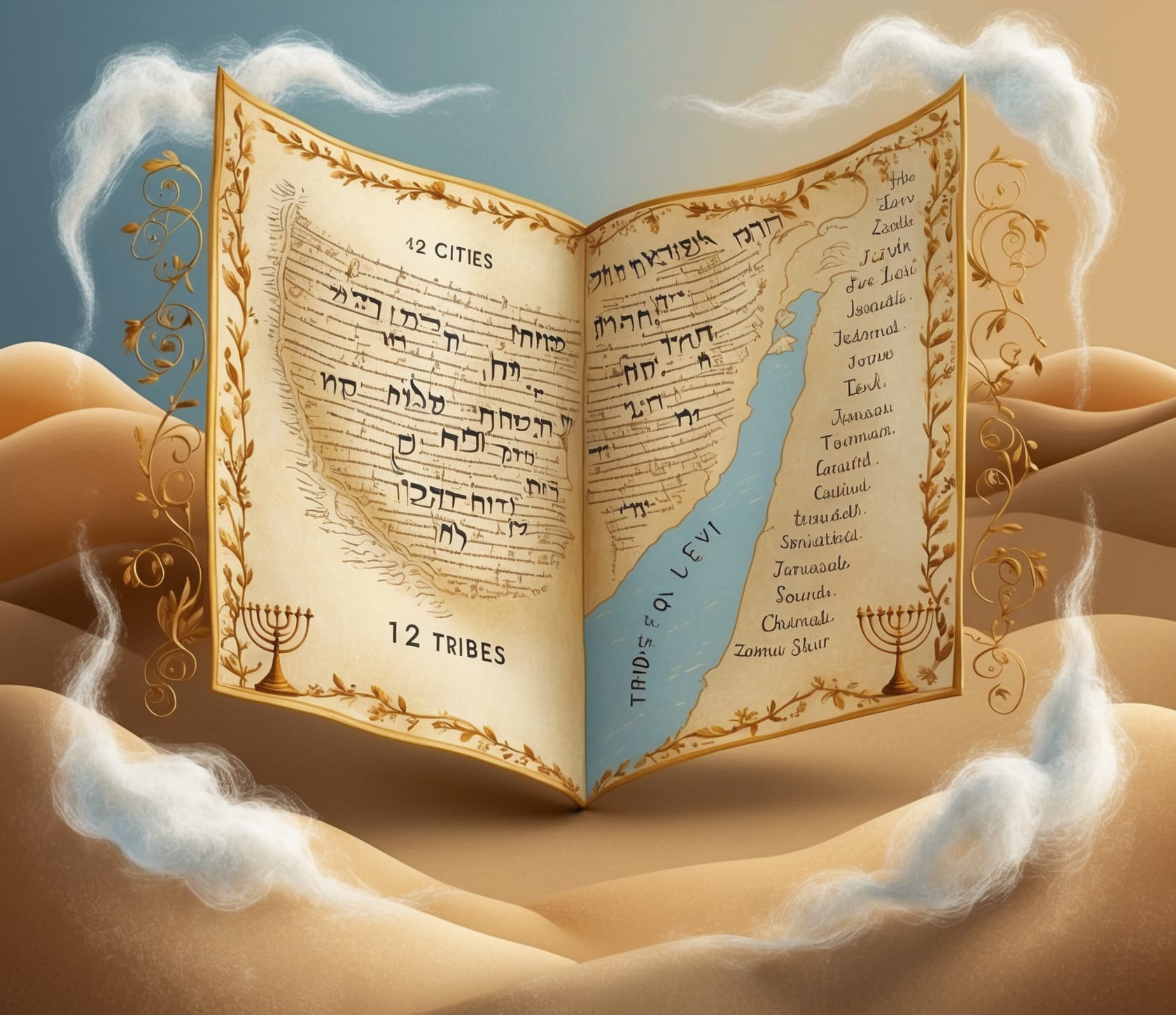
The total number of places where the Levites resided in each country of Israel is forty-nine: forty-two cities of the Levites and another six cities of refuge and the Temple.
After entering the Land of Israel, the Levites were given forty-two cities in which they could live. Why forty-two? The number forty-two is a special number, since it is the number of journeys made by Israel people in the desert. Supposedly, the Torah hints to us that desert travel found its permanence in the forty-two cities of the Levites. But this answer immediately raises another question, namely: Why was the number of journeys forty-two?
If we break down the number forty-two into factors, we get: 42 = 7 * 6. The number seven symbolizes natural holiness (Shabbat), while the number six is the number that measures time and movement in time (the six days of action). And when these two numbers are combined together, that is, the movement in time towards the fixed Shabbat, the number forty-two is obtained, which means movement in Kadesh.
In fact, the Levites were given six more cities beyond the forty-two cities mentioned, and these are, of course, the six cities of refuge in which the Levites also lived. And there is another place where Levites could always be found – the altar and the temple. A simple calculation shows that the total number of places where the Levites lived in each land of Israel is forty-nine: forty-two cities of the Levites plus the six cities of refuge and the Temple. Decomposition into factors of forty-nine gives: 49 = 7 * 7. This number teaches the combination of two holinesses, the sanctity of the place and the sanctity of time. The transition from the desert to the land of Israel, like the transition from forty-two to forty-nine, is the transition from movement to permanence.
An interesting point about sanctuary cities is the composition of the population that lives in them. Three different groups lived in the cities of refuge: the first: members of the tribe whose land was the city of refuge (in Hebron – members of the tribe of Judah, in Kadesh – members of the tribe of Naftali, etc.). The second group: the Levites, that is, Torah scholars. And the third group is accidental killers. In fact, this composition is reminiscent of today's yeshiva. There are Torah scholars in the yeshiva as well, and there are those who came to dwell around the Torah scholars [and there are those who came to correct their ways]. There is a need for commoners to meet with a spiritual personality.
The Election of the Tribe of Levi
The choice of the tribe of Levi is explained in the portion of your upload. In the portion of the choice of the Levites there is a very interesting verse (Numbers 8:19):
"And I will give the Levites to Aaron and his sons from among thesons of Israelto worship thesons of Israelin the Tent of Moed and to atone for the sons ofIsrael, and there will be no obstaclein the sons of Israelin accessing theIsrael tothe Holy Land."
The words Benny Israel appear five times in this verse, specifically in the verse that talks about the choice of Levites. The Torah emphasizes to us that the choice of Levites is precisely from among the children of Israel. The choice is not based on the supremacy of the bones of the tribe of Levi, but rather out of the ability to be related to the sons of Israel the sons of Levi were chosen (as opposed to the priests). Why is it said in this verse that my son Israel five times? Rashi in his commentary on the verse explains: The Lord is often told by the sons of Israel in this Bible, to announce their affection that their references were multiplied in one Scripture as the number of the Pentateuch of the Torah and this is what I saw in Genesis Rabbah.
The role of the Levite is a receptacle for the Torah, and for this purpose he was chosen. Therefore, his election is against five books of the Torah. Based on this parallel between the references to the words Bnei Israel in this verse and the five books of the Torah, it emerges that:
Genesis – against "out of the sons of Israel."
Exodus – against "worshiping the children of Israel in the Tent of Moed."
Leviticus – Against "And Atone for the Children of Israel"
In the desert – against "And there shall be no stumbling block in my son Israel."
Deuteronomy – against "the approach of the sons of Israel."
Aspiration for office
Halevi feels frustrated. On the one hand, he is constantly at the mercy of the Israelites who will provide for him, and on the other hand, he is subject to the authority of the priest. This is quite an annoying situation, so it is no wonder that within the funeral camp a strong desire for the priesthood has developed. This aspiration began with Korach, who was the first Levite who wanted to be a priest. What is the answer and cure to this frustration? It must be understood that it is inconceivable that God created frustration in His world that cannot be saturated. The Sages have already said: Ice who was clever was, what did he see for this folly? They also answer that he saw the prophet Samuel from his loins. Shmuel is the bald ideal. The prophet Samuel succeeded in fulfilling the dreams of ice. The prophet Samuel was a high priest at the time when Shiloh was in ruins, and even offered sacrifices in pulpits while dressed in the clothes of the high priest (as the Zohar explicitly says). Of course, Samuel was a prophet and he did so by temporary order, but nevertheless Samuel was a Levite who functioned as a priest.
However, there is a fundamental difference between the conception of the prophet Samuel and that of ice. The prophet Samuel understood that there are situations in which the priesthood is not worthy of leadership, and then God sends one of the descendants of Ice to restore leadership and reestablish public and national institutions. For some twenty years, Shmuel did nothing but re-educate the people, because he understood that this was where the real problem lies, and during this time he realized Korach's dream. However, the prophet Samuel understood that this was only a temporary move, which was to end, while Korach's aspiration was that this would be the permanent situation among the people.
Levi – The Measure of Law
The reason the Torah chose the tribe of Levi for the priesthood is because there is a dangerous virtue in this tribe – the measure of judgment. The one who came up with this point even before the election of the tribe of Levi is our forefather Jacob. When Jacob blesses his sons before his death, he blesses Simon and Levi (Gen 44:5-7):
"Shimon and Levi are brothers from their mines. In their secret, do not come to my soul in their crowd, do not honor me, for with their noses they have killed a man and willingly sterilized an ox. Cursed are they because they are fierce, and you have transgressed because they have hardened their faith in Jacob and spread them in Israel."
Jacob saw that these two tribes were extremists and potentially dangerous. Is it good to be a religious extremist? Depends on the period. The vast majority of the time this is bad, but sometimes there are specific situations in which the people need such people. After the sin of the calf, Moses shouts "Who is to the Lord to me," and the tribe of Levi rises up and kills its relatives. In order to do such an act, the mother must have a personality who does not do arithmetic, a person for whom only the word of God establishes. And it was only because of this deed of the tribe of Levi that God atoned for the children of Israel. Similarly, we can see the act of Pinchas, and the Hasmoneans who committed extreme acts. We see that sometimes there is room for fanatical behavior, but it is not possible to manage with a people regularly and continuously in these ways. Therefore, the tribe of Shimon and the tribe of Levi must be kept from doing nonsense, and this is what Jacob blessed us.
The purpose of dispersing the Levites
Therefore, our forefather Jacob also says, "I will divide them in Jacob and distribute them in Israel." When there is a city full of Torah scholars, it is dangerous. Rabbi Akiva also explicitly says that one should not live in a city full of Torah scholars. When there is too high a concentration of strictness, the place may become violent and cut off from the world, so the solution is to disperse them throughout the cities of Israel. Only after they disperse can the first part of the verse exist in them (Deuteronomy 33:10):
"Your judgments and your Torah to Israel will put incense in your nose and completely on your altar."
Nowadays, Torah scholars are the modern equivalent of Levites, and even among Torah scholars there is a danger of too high a concentration. Today's Torah scholars also need contact with the rest of the nation. Therefore, the Torah depended on the peoples of the lands, on the workers of the land. The Torah forces the existence of a human relationship that binds the holy people to the secular people. Only in this way can holiness rise from the entire nation.
Priests and Levites
G-d added another solution to limiting the measure of the Levite's judgment, namely that the Levite serve the Kohen. Because the priest is just like the Levite, but vice versa. All the priests are descendants of the first priest – Aaron. Aharon was years older than Moses, but when Aharon Hacohen is informed that his little brother is going to be the leader of the nation in his place, and to remove him from Egypt, his response is (Exodus 4:14):
"And the Lord also spoke to Moses, and he said, 'No, Aaron, your brother Halevy, I knew that the word would speak to him, and here too he goes forth towards you, and is tender and rejoicing in his heart.'"
This is the first time in history that Big Brother in years has rejoiced in the greatness of the younger brother. In every book of Genesis we always found the opposite examples, of how the older brother is jealous of the little brother, whereas with Aaron this did not happen. Aharon was the first to overcome the measure of judgment and thus became a man of kindness, for there is no greater grace than this. Since the priests are the people of grace, they are the ones chosen to be the seers of the afflictions in the home, in clothing and in the body. It was not the Torah scholars who were chosen for this purpose (although the laws are not simple), but rather the priests, because in order to purify or defile one requires a look of kindness on the man. This is why Levites are enslaved to priests. The study of judgment has no purpose in the world, but its entire function is to serve the measure of grace, for God always descends to the measure of grace. When the Levite is under the authority of the priest, then a union between grace and judgment can be created, and the practice of mercy is accepted, which is against all Israel people as a whole.
The Priests – Detachment from This World
The special virtue of the priests is to turn the measure of judgment into the measure of grace. The priests have special laws designed to preserve their special virtue. In fact, the priests are not normal, the whole halacha arranges their lives. In this world there is death, there is labor and there are crises and failures. But halacha distances the priest from all this. Halacha forbids the priest to meet with death; the priest is forbidden to defile the dead (by the way, exactly the opposite of what is customary among gentiles). The priest lives under the illusion that there is no death in the world. Nor does the priest have to work – he earns his living from donations and sacrifices. Cohen is forbidden to marry a divorced woman. A divorced woman is a woman who has gone through a serious crisis, and the priest must distance himself from the crises of this world. The Torah takes care to keep the priests away from all the troubles of this world, because the priest is all supreme grace, and he must be so that he can help others who are immersed in this world, for it is known that no quince permits himself.
The priests are also the ones who make sacrifices. The first task in the sacrificial process is slaughter, it is not the most pleasant thing, and does not express the degree of kindness. Therefore, the Torah said that slaughter is permitted in a stranger and there is no need for the priest to slaughter the altar. The kohen is so gentle that the Torah also allowed foreigners to slaughter despite the importance of this work (although the kohen can also slaughter, but the very fact that the Torah permitted the slaughter of strangers shows that this work is farther away from the kohen, and this uproots its barbaric aspect). The rest of the tasks that are more delicate can only be performed by the priests.
In addition, it is said of the priests that they are agile, since the priests are cut off from this world, which is slow, and they are more connected to the upper world, the soul, which is faster.
Degree of majesty
Thanks to the combination that Cohen has between the measure of judgment, which came not from the tribe of Levi, and the degree of kindness that came to him from Aaron Hacohen, he gains the degree of majesty. There is an aesthetic dimension to the priesthood, sacred clothing for honor and glory. Aesthetics is a layer of reality that lies control, imagination. There is a lot of falsehood in this world, but it can also be used for the sacred. But only a person who comes from a deep root of holiness can make the aesthetic holy. As long as there is no renewal of temple work, aesthetics are dangerous and need examination (but it is not forbidden). The Temple is referred to by our sages as the "Neu Shel Olam", the source of aesthetics in the world is from the Temple, so as long as there is no Temple we must be careful about it.
The danger of tenure
The priesthood, by its very nature, is fraught with great danger. There is a fear that most of the priest's spirituality will coincide with detachment from this world. And this is especially evident on Yom Kippur. The High Priest enters the sanctuary and returns to the roots of life. The High Priest must have had a lot of fun there, and he certainly wouldn't want to go back to this world. In fact, it would be a very abnormal move on his part to want to return. But we need him, so they would tie a rope to the high priest's leg when he entered the sanctuary, so that he would not forget us. The priest must be tied to this world, otherwise he may be completely cut off from it.
In addition, they would swear to the High Priest that he would not change anything. There is a danger that the priest will feel liberated from the shackles of the Law of Moses. Before the dedication of the altar, the Torah says (Leviticus 8:33-33):
"And Petah Ahel stumbled, sit day and night for seven days and keep the watch of the Lord and you will not die, because I have commanded. And Aaron and his sons did all the things that the Lord commanded by the hand of Moses."
The Torah commands the priests not to run immediately to the sanctuary, but to sit for seven days at the door. Our sages demanded to praise Aaron and his sons for not deflecting from Moses' words left and right. In other words, it was not obvious for them to listen to the words of Moses, but it was difficult for them, but they managed to overcome it. It is difficult for a priest to accept that there is a law that regulates the endowment, he wants to fly up freely. Indeed, immediately afterwards we witness the foreign fire that Nadav and Avihu plucked. When the priest is in holy religious ecstasy, he may leave the Law of Moses, moving from the seventh day to the eighth day. This was also the Sadducees' temptation during the Second Temple period. Therefore, they would satiate the High Priest, satiate from the tongue of seven, return the High Priest from the eighth day to the seventh day.
The relationship between the priest and the Levite must be maintained. When Moses and Aaron Hacohen separated, Moses at Mount Sinai upstairs and Aaron down, then the crisis began. Aharon Hacohen did not identify with the will of the people, but rather had a tendency to act without guidance and independently, and thus the calf was created. Jeroboam also made calves, in Bethel and Dan. Jeroboam thought that it is forbidden to make calves only when there is Moses and there is a Tabernacle or Temple, but when there is no Moses, Aaron also made a calf. So at the time, after the kingdom was divided and there was no temple to the kingdom of Israel, he made calves. The Sages tell us that Jeroboam demanded one hundred and three flavors in the Torah of Cohen. The number one hundred and three is the geometry of the word calf. Jeroboam explained the establishment of his calves on the basis of the priesthood. Jeroboam was wrong, and if Israel people in the desert were wrong, they had to wait for Moses to return. Therefore, the priesthood also has a mechanism that regulates it – the Sanhedrin. The members of the Sanhedrin are the ones who give the priests the priesthood, and the members of the Sanhedrin were also from Israel. In other words, there is a kind of circle in the connections between the layers of the people. Halevi teaches Israel, but he himself is subordinate to the priest. The appointment of priests, on the other hand, is in the hands of the Sanhedrin, in which Israel sit.
The inspiration of the Divine presence depends on proper relations between the three parts of the nation, with the Kohen at the top, the Levite in the middle, and Israel at the bottom.
